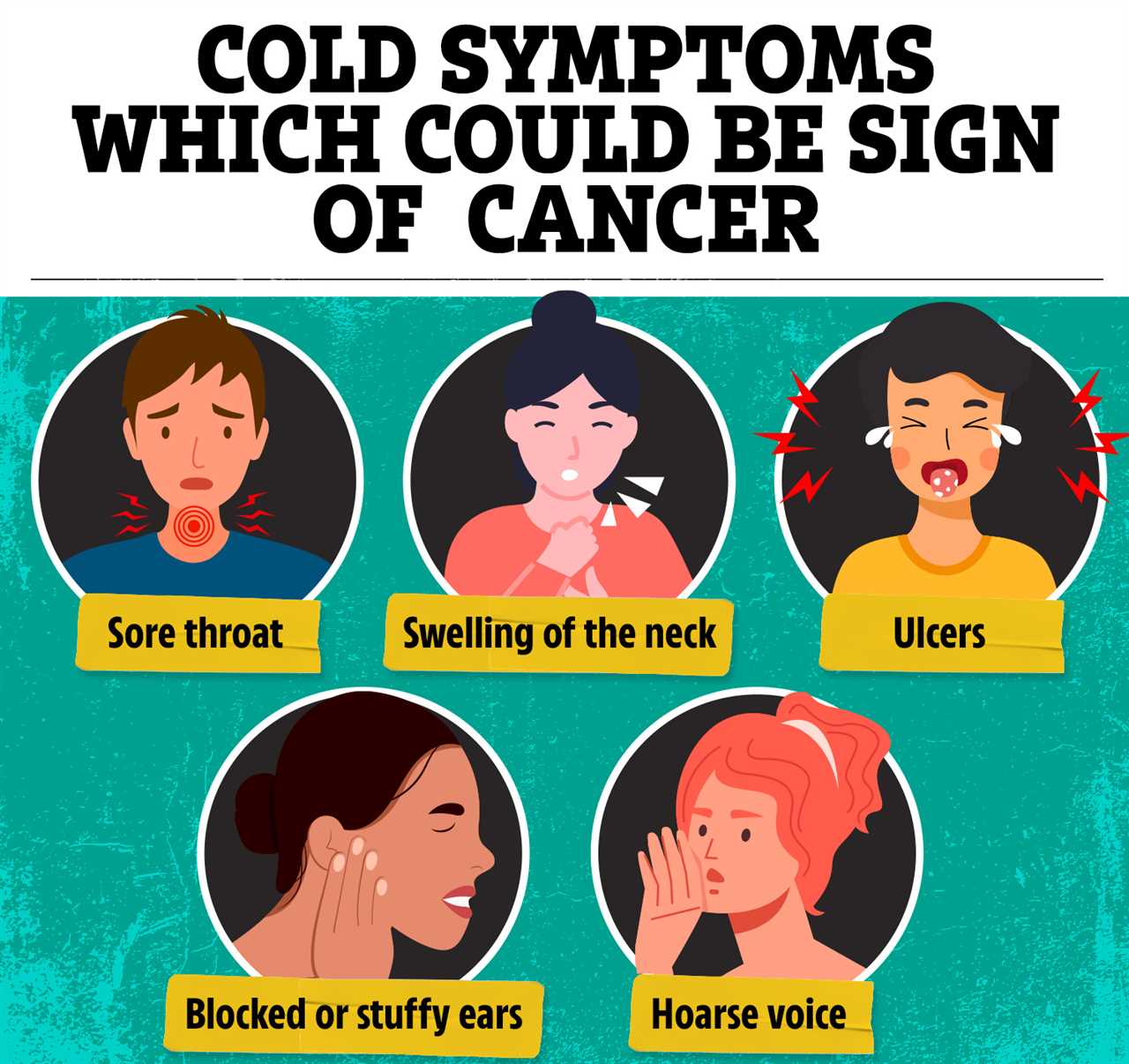
It's that time of year again when coughing, sneezing, and displaying common cold symptoms become a regular occurrence. While the odd sniffle is usually nothing to worry about, in some cases, it can be a sign of something much more serious. It's important to be aware of the cold-like symptoms that could potentially be a sign of cancer.
1. Sore throat
We have all experienced a sore throat at some point. It can feel itchy, make swallowing difficult, and even leave a bad taste in your mouth. According to the NHS, a sore throat is usually a symptom of strep throat, the common cold, allergies, or other upper respiratory tract illnesses like the flu. However, persistent pain in the throat is one of the most common symptoms of throat cancer. Throat cancer can include cancer of the voice box (laryngeal) and the vocal cords (glottic). Other signs to watch out for include a cough, changes to the voice, ear pain, and difficulty swallowing.
2. Swelling of the neck
If you notice that your neck is slightly swollen or sore, it is usually a sign that your body is fighting off an infection such as a cold, the flu, or glandular fever. The pain will come from your glands, which may feel like tender lumps on either side of your neck. In cases of a superficial infection, swollen glands, also known as lymph nodes, will usually go down within one to two weeks. However, if they last longer than a fortnight, it could be a sign of something more serious, such as cancer of the blood (leukaemia) or lymph system (lymphoma). Pay attention if the swollen glands are painless and appear to be growing in size. Signs of leukaemia include fever, chills, frequent infections, easy bruising, and recurrent nosebleeds. Common signs of lymphoma are swollen lymph nodes all over the body, fatigue, night sweats, and itching.
3. Ulcers
Mouth ulcers are quite common and typically clear up on their own within a week. They usually appear inside the mouth, on the cheeks, lips, or tongue. According to the NHS, ulcers can be triggered by various factors, such as food allergies, feeling run down, and in some cases, cancer - especially if they don't go away. Ulcers are the most common symptom of mouth cancer, as stated by Macmillan. Look out for other signs such as weight loss, speech problems, pain in your mouth, and bad breath.
4. Blocked or stuffy ears
Experiencing blocked or stuffy ears that muffle sounds is a common sign of a nasty cold. This usually happens when the eustachian tubes, which connect the middle ear to the back of the throat, become inflamed. However, a less common cause of blocked ears is a rare cancer called nasopharyngeal carcinoma. This type of cancer affects the part of the throat that connects the back of the nose to the back of the mouth. If someone has this disease, they may experience ear pain, a swollen face, a discharge of pus and blood from the nose, swollen lymph nodes, and nosebleeds.
5. Hoarse voice
A change in voice is usually a sign of laryngitis, which occurs when the voice box or vocal cords in the throat become irritated or swollen. This can leave the voice hoarse, breathy, or even cause a complete loss of voice. However, if the voice remains changed for over three weeks, it could be a sign of laryngeal cancer, as mentioned earlier.
While these symptoms can be alarming, it's important to remember that they are not always indicative of cancer. However, if you experience any of these symptoms and they persist or worsen, it is crucial to seek medical attention to rule out any serious underlying conditions. Your health should always be a top priority.






